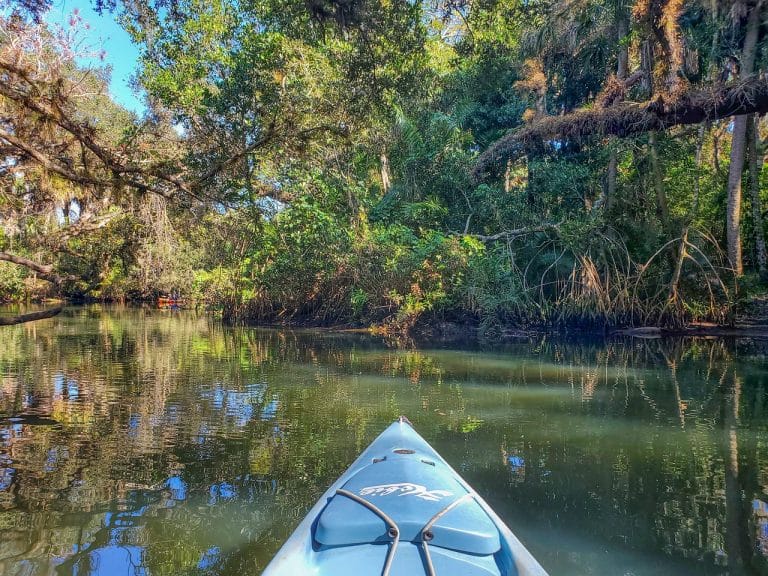A quiet canoe outing turned tragic on May 6, 2025, when 61-year-old Cynthia Diekema lost her life in a fatal alligator attack on Lake Kissimmee in Central Florida. Cynthia and her husband had been enjoying a peaceful day on the water when their canoe drifted over a submerged alligator. In a sudden burst of movement, the reptile thrashed, capsizing the boat, launching them into the lake. What followed was a heartbreaking sequence of events that led to Cynthia’s death, despite her husband’s desperate efforts to intervene. This alligator attack has shaken the local community and prompted renewed safety warnings.
A Peaceful Day Turns Deadly
Cynthia and her husband were paddling near the mouth of Tiger Creek, a tributary feeding into Lake Kissimmee, when the alligator encounter occurred. According to reports, they had unknowingly disturbed a large alligator by passing directly over it in shallow water. The animal’s reaction was immediate and violent, causing the canoe to flip and the couple to fall into the lake. As Cynthia landed on the creature, it bit her, resulting in injuries that proved fatal before help could arrive.
Witnesses say the husband did everything he could to save her, even attempting to fend off the alligator barehanded. Unfortunately, he was unsuccessful, and authorities later recovered Cynthia’s body near the scene. The Florida Fish and Wildlife Conservation Commission (FWC) responded swiftly, securing the area and launching a search for the responsible reptile. Two large alligators, one over 11 feet in length, were later captured by FWC trappers.
Officials believe one of those two alligators was likely responsible for the attack, but without definitive evidence, they cannot say for certain. The FWC noted that this area, while known for its beauty, is also prime alligator territory. Mating season in Florida, which typically begins in April and extends through June, is a period when these reptiles are especially active and aggressive, increasing the risk of encounters like this one.
Though Florida sees thousands of human-alligator interactions each year, fatal alligator attacks are rare. Since 1948, there have been only 27 recorded deaths from unprovoked alligator attacks in the state. That statistic, however, does little to soften the blow for those mourning Cynthia Diekma’s loss. The tragedy has sparked discussions around waterway safety and how to coexist with Florida’s native wildlife.
Understanding the Risks
The aftermath of the alligator attack has led to intensified scrutiny of safety practices around Florida’s lakes and swamps. Wildlife officials are urging the public to exercise caution, especially during mating season. Avoiding shallow, weedy areas where Gators may hide, refraining from swimming outside of designated zones, and steering clear of known habitats during early morning or late evening hours are now strongly encouraged. Many residents and outdoor enthusiasts are re-evaluating how and when they venture into these waters.
In response to the alligator attack, the FWC not only removed 2 massive alligators from the lake but also reinforced the state’s nuisance alligator program. This initiative allows trained trappers to remove animals that pose a threat to people, especially in areas where human activity is frequent. The removal of potentially dangerous animals aims to prevent future tragedies, although officials acknowledge that no system is foolproof. Alligator habitats are vast, and these creatures are territorial and stealthy.
Local communities near Lake Kissimmee have expressed both grief and concern. While saddened by the alligator attack, residents are also calling for improved signage, public education campaigns, and possibly restricted zones for boating during peak alligator season. Outdoor safety workshops and wildlife awareness sessions have begun cropping up in the area, offering advice to both locals and tourists on how to safely enjoy Florida’s natural beauty without unnecessary risk.
Despite these efforts, experts stress that complete removal of the threat is not realistic. Alligators are a vital part of Florida’s ecosystem and have been present long before cities and recreational areas were developed. The goal, they say, should not be to eliminate them but to better understand and respect their space. The death of Cynthia Diekema is a sobering reminder of what can happen when the boundaries between nature and human activity are blurred, even unintentionally.
Conclusion
The tragic alligator attack that claimed the life of Cynthia Diekema has left an indelible mark on her family, her community, and everyone who loves Florida’s waterways. It serves as a powerful wake-up call about the unpredictable realities of sharing space with wild animals. As discussions continue around water safety and wildlife management, the incident also highlights the importance of awareness, preparedness, and respect for nature. Cynthia’s story is a moment to reflect on how we interact with the world around us, and what we must do to ensure that such a devastating loss does not happen again.








